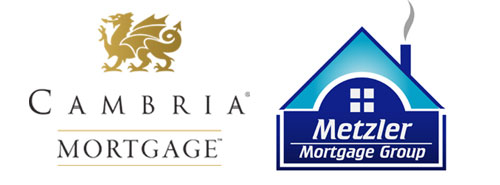-
Share via:
(651) 552-3681
Home Purchase - Home Refinance
Serving MN WI IA ND SD CO FL
- Home
- Reviews
- Apply
- Quick Qualify
- Rates & Costs
- Loan Programs
- Bad Credit Loans
- Buying a House
- Commercial / Apartment
- Doctor Loans
- FHA Loans
- Down Payment Assistance
- First Time Home Buyer
- HomeReady
- Investor DSCR Loans
- Luxury home financing
- Jumbo Loans
- Loans for Self Employed
- New Construction Loans
- No Down Payment Loans
- No Doc / Non-QM
- Refinancing
- Contract for Deed Refi
- Renovation Loans
- USDA Loans
- VA Loans
- Client Resources
- After BK or Foreclosure
- The Home Loan Process
- Daily Mortgage News
- Your credit score
- Student loans
- Homebuyer Classes
- Mortgage FAQ
- Glossary of Mortgage Terms
- Use a Bank or Broker?
- Fixed or ARM
- Home Buyers Guide
- Mortgage Rate Locks
- Long Term Rate Locks
- Mortgage Loan Limits
- No Closing Cost Loans
- Get a Second Opinion
- Tips for a smooth closing
- Top Mortgage Mistakes
- Foreclosures / Short Sales
- How to buy foreclosures
- Well and Septic
- Beware Predatory Lenders
- About
- Blog
- My Acct
Navigation- Home
- Reviews
- Apply
- Quick Qualify
- Rates & Costs
- Loan Programs
- Bad Credit Loans
- Buying a House
- Commercial / Apartment
- Doctor Loans
- FHA Loans
- Down Payment Assistance
- First Time Home Buyer
- HomeReady
- Investor DSCR Loans
- Luxury home financing
- Jumbo Loans
- Loans for Self Employed
- New Construction Loans
- No Down Payment Loans
- No Doc / Non-QM
- Refinancing
- Contract for Deed Refi
- Renovation Loans
- USDA Loans
- VA Loans
- Client Resources
- After BK or Foreclosure
- The Home Loan Process
- Daily Mortgage News
- Your credit score
- Student loans
- Homebuyer Classes
- Mortgage FAQ
- Glossary of Mortgage Terms
- Use a Bank or Broker?
- Fixed or ARM
- Home Buyers Guide
- Mortgage Rate Locks
- Long Term Rate Locks
- Mortgage Loan Limits
- No Closing Cost Loans
- Get a Second Opinion
- Tips for a smooth closing
- Top Mortgage Mistakes
- Foreclosures / Short Sales
- How to buy foreclosures
- Well and Septic
- Beware Predatory Lenders
- About
- Blog
- My Acct
10 Tips to a smooth real estate closing / mortgage loan closing, from a guy who has been to thousands.
Minneapolis, St Paul, MN: Congratulations! You "bought a house" and signed a purchase agreement. You've been working with your Loan officer to supply documents, and get final underwriter approved. You've probably waited 30, 45, 60 days or more since signing that purchase offer for your closing to finally happen, and to get the keys to your new home!
Here are some helpful hints and tips to follow that may prevent your home loans closing from becoming a nightmare. Whether you are the seller, buyer or simply refinancing a current mortgage, the actual closing can be quite simple or become a total nightmare. Below are ten helpful tips and hints, in no particular order, that if followed, may prevent the closing from becoming a terrible experience from a Loan Officers that has had thousands of closings.
Mortgage Closing Tips
1) Arrange and perform a pre-closing interview with both the Loan Officer and Title Closing Agent. This will ensure that both parties have identical information regarding the transaction. It is extremely important to speak to them several days before closing.

During the loan process, you may get an "Initial Closing Disclosure" (CD)- This is NOT your final number. Just prior to closing, you will receive a "final" Closing Disclosure (CD) from your lender. This initial Closing Disclosure document will get pretty close, if not the exact number, while the final Closing Disclosure will be the exact amount due (if any) at closing. Not all lenders send an initial Disclosure, so you may only get one a final CD a few days before closing.
BUYER TIP: DO NOT TAKE any final amount due at closing numbers from your Real Estate Agent. Get it from your Loan Officer, and no one else. While the Real estate Agent may be trying to be helpful, they are NOT the correct source of final number information.
Your accurate final numbers for a seller is from the Closing Attorney or Title Company.
If you are the buyer or borrower, verify the loan amount, interest rate of the loan and the amount financed with your Loan officer. Make sure that both parties have the correct spelling of all borrowers and their spouses legal names. Also verify the sales price and amount of deposit that you paid if the transaction is for the purchase of a home.
If you are the seller in a sales transaction, make sure that the sales price and the amount of the deposit being held in escrow are correct. Be sure to verify the correct spelling of the names of all people that are in title to the property.
2) If you intend on having a third-party (i.e.- attorney or relative) review the closing papers prior to closing, make sure that both your Loan Officer and Closing Agent are aware of it several days prior to closing. This isn't a problem, but it is rare, so having the documents available early is not normal. If the Closing Agent and Loan Officer are not aware of your request, they cannot plan accordingly to get you the document for early review.
3) Know where the closing is going to be held. Possibilities include the title insurance company or Closing Agent, attorney’s office, one of the Realtor’s offices and the mortgage company’s office. Standard procedures vary between states and sometimes local areas. Make sure you know which applies to your transaction at least 24 hours prior to closing. The Closing Agent is the best person to speak with to verify the closing location
4) Every borrower has the right to a private closing. This means that many of the papers you may sign can be executed without the seller and/or Realtor(s) in the room with you. In most cases, the terms of your financing are not relevant to the other people of the transaction, and need not be seen by these third parties. If you intend on invoking this right, be sure to inform the Closing Agent several days prior to closing. This will allow them time to make proper arrangements in their office.
5) Try to avoid closing at the end of the month. The last week of every month is extremely busy for both the Closing Agent and your mortgage lender. Many Real Estate Agents incorrectly assume you save a lot of money by closing on the last few days of the month, so most Real Estate Agents automatically write into your purchase agreement a closing the last few days of the month. Call me, I'll explain why this isn't true, and why they are making incorrect assumptions.
There is a larger possibility that an error may be made during this very busy time. You may also find the Closing Agent much more relaxed and personable if they don't have 8 other closings scheduled the same day as yours. Anytime between the 4th and 24th of the month are good days to close.
Another benefit has to do with moving. If you are leaving an apartment, have already given notice, and your closing is delayed by a few days, you are screwed if it is the last days of the month. Now what are you going to do? If if closing was scheduled for the 20th day of the month, now you are just fine.
6) Make sure that the Closing Agent is aware of any typos that may have been discovered during the application process. If you are the seller, this applies to any past closings that may have caused documents to be recorded in public records with incorrect names or addresses. The documents that are presented for signing at closing are prepared by at least two different sources. There is a possibility that if you corrected an error with the mortgage company, it was not forwarded to the title insurance company and vice-versa. Informing the Closing Agent will allow them to check all of the documents for accuracy before they are presented to you for signing.

We lend in MN, WI, IA, ND, SD, CO, FL, CO, and FL
7) Identification. Be sure that every borrower and seller bring a valid drivers license or other picture ID to closing. This is required for notary purposes. The closing agent will also ask you to provide ALL the address of where you've lived for the past 10-years, so jotting it down before hand on a piece of paper you can just hand to them speeds the process.
8) If you are the seller of a purchase transaction or the borrower of a refinance transaction, make sure the Closing Agent knows when your last payment was made on your current mortgage(s). Your lender or Closing Agent will request a payoff statement from your current lender generally a week or so before closing. If another payment has been made but not posted, we need to know that. This will make the payoff figures used for the closing inaccurate and would result in your current mortgage company owing you money after they have been paid-off, or you still owing them after you thought you had paid it off.
Phishing wire fraud is on the rise

Don't ask me how the crooks know, but many people in the process of purchasing a home have received FAKE letters in the mail, and fake E-Mails that look VERY legitimate that give false information on where home buyers should send, or wire transfer their down payment and closing costs for the closing on their new home.
As with any financial transaction, be very aware: If you are closing at a title company in Minneapolis with a Minneapolis mortgage lender, and you receive an e-mail with wiring instructions to send your money to a bank in California, that should raise a big red flag.
DO NOT follow any wiring instruction you may receive via e-Mail.
ALWAYS CALL the title company directly for wiring information, or if possible, simply bring a cashiers check to closing.
9) Any money that is needed for closing your home loan, like down payment, whether you are the seller, buyer or borrower, must be in the form of guaranteed funds. Personal check or Cash is never acceptable!
You have only two options, and both usually require you to physically go to your bank:
- Get a Cashier’s Check
- Bank wire transfer the funds directly to the Closing Agent / Title Company.
Important: If getting a Cashier's Check, have the Cashier’s Check made payable to the Closing Agent / Title Company. Do not use "and" - like your name AND the title company! Years ago, it was common to make out the Cashier's Check to yourself, and endorse it over to the closing company. This is generally no longer acceptable due to fraud concerns.
Many Title Companies may require you to wire the money to them, especially if the amount is over $5,000. Be sure to check with the Title Company to determine if a cashiers check is OK, or if they require you to wire the funds.
PRO TIP: If wiring money is a requirement, be sure to wire the money AT LEAST by noon the day PRIOR to closing. A general rule of thumb is this: If the instrument requires your signature, it is probably not acceptable for the closing. In many areas, even a Certified Check is not acceptable.
10) Try to schedule your closing time no earlier than late-morning (11:00 or later). This will allow time for overnight mail carriers to make their deliveries, which may include your closing papers, and the money from the lender to arrive via bank wire transfer. It also allows you to do a walk through of the home just prior to closing, and to even be on time because you missed rush-hour traffic.
CONGRATULATIONS!
You are now a home owner

** EXPERIENCE MATTERS **
Top rated mortgage lender locally and nationally, year after year... This is because clients agree - Experienced Loan Officers with mortgage interest rates you can brag about and amazing service clearly sets us apart from the big banks and online lenders.
Address
33 Wentworth Ave E, St Paul, MN 55118
Contact
Main (651) 552-3681
Joe@JoeMetzler.com
Cell/Text (651) 705-6261We also call from
(651) 615-7545
(952) 486-6135License Info
Cambria Mortgage
NMLS# 322798 Branch:1888858Joe Metzler Loan Officer
NMLS# 274132. License MN #MLO-274132, WI #11418. SD #MLO.03095, ND #NDMLO274132, IA #36175, FL #LO119389, CO #100536785Privacy Policies | Disclaimers | Disclosures | Terms of Use | DMCA Notice | ADA Notice |

Equal Housing Lender. The Joe Metzler Team at Cambria Mortgage lends in Minnesota, Wisconsin, Iowa, North Dakota, South Dakota, Colorado, and Florida only. This is not an offer to lend or to extend credit, nor is this a guaranty of loan approval or commitment to lend. Information here can become out of date, and may no longer be accurate. Products and interest rates are subject to change at any time due to changing market conditions. Not all programs available in all states. Actual rates available to you may vary based upon a number of factors. Consumers must independently verify the accuracy and currency of available mortgage programs. All loan approvals are subject to the borrower(s) satisfying all underwriting guidelines and loan approval conditions and providing an acceptable property, appraisal and title report. Joe Metzler, NMLS 274132, Cambria Mortgage NMLS 322798. © 1998 - 2024.










